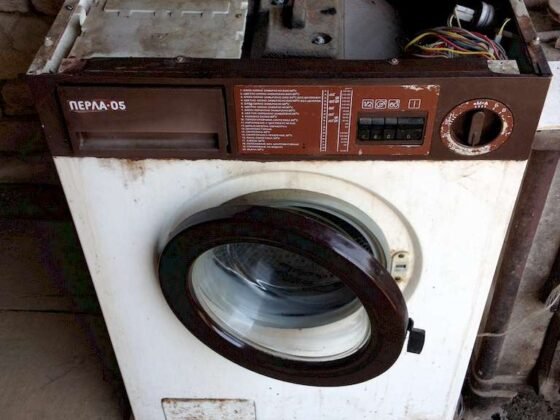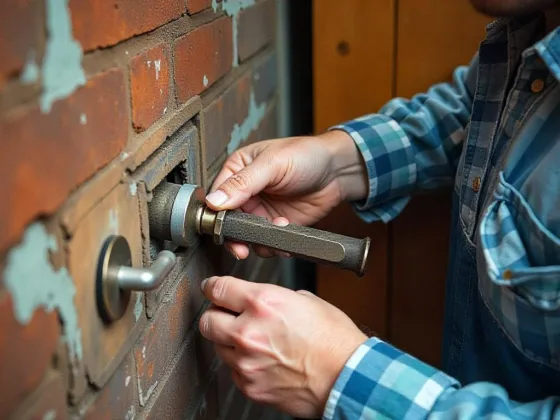Table of Contents Show
Home warranties are specifically designed to protect houses’ critical systems (e.g., HVAC and home security systems) and appliances against breakdowns brought about by ordinary use or normal wear and tear.
For instance, if you purchased a state-of-the-art, expensive refrigerator last year, a home warranty can cover it.

A home warranty takes effect once the manufacturer’s warranty expires. This way, you won’t have to spend hundreds or thousands of dollars for repairs or replacement in case you’re previously in good-condition appliances malfunction.
In this post, you’ll learn how to choose a great home warranty provider.
Choose a Reputable and Dependable Home Warranty Provider
It’s important to compare home warranty providers before making a final decision. Because your real estate agent claims that a specific company is good, it doesn’t mean you have to agree to it right away.
Do your homework by checking reviews about your prospective home warranty provider to find out what other homeowners have to say. Here are some First American Home Warranty reviews to give you an idea of what to look for.
Also, learn more about the home warranty company by visiting their website. Make sure to read their “About Us” section, terms, as well as plans and services.
Another way to find out the best home warranty provider is to get referrals from your relatives, friends, and trusted colleagues or neighbors.
Check Availability of Flexible Home Warranty Plans
Aside from years of experience, a reputable home warranty provider offers flexible plans that homeowners can choose from.
A trusted home warranty company like Priorityhomewarranty would allow you to build your own plan and choose your desired service fee.
From the offered plans alone, such as American Home Shield plans, you’ll know if the home warranty provider is right for you.
You can choose a plan that covers a specific range of appliances, like your oven, cooktop, dishwasher, garage door opener, trash compactor, built-in microwave oven, and refrigerator.
Here are some of the major systems and appliances typically covered by a home warranty provider:
- Air conditioning and ductwork
- Electrical
- Heating and ductwork
- Plumbing (with stoppages)
- Smoke detectors
- Doorbells
- Ceiling fans
- Water heater
- Garbage disposals
- Hot and cold water dispensers
- Re-key
- Central vacuum
Expert Tip: Before purchasing a home warranty policy, it’s best to determine whether your home appliances really need it.
You can check the estimated cost of home systems and appliances maintenance by using a home maintenance calculator.
By doing so, you can compare the result with the amount of money you have to pay for a home warranty policy.
Ask About the Terms of Emergencies
It’s important to ask your prospective home warranty provider about their definition of “emergency” coverage, including the turnaround time.
If the emergency happens in the middle of the night and you can’t contact the home warranty provider, would you get reimbursed?
Find Out If the Company Covers Pre-existing Conditions
You can save a lot of money with a home warranty. While some home warranty providers cover pre-existing (already present) conditions, others don’t cover repairs related to such conditions.
Usually, pre-existing conditions are difficult to identify through visual inspection and even a simple mechanical test.
That’s why choosing a home warranty company that covers pre-existing conditions helps avoid denied claims.
Assess the Home Warranty Provider’s Customer Service
Observe how the home warranty company’s customer service representatives treat you.
Assessing this aspect of their business is crucial if you’ll need to talk about more important and serious matters with them concerning your policy in the future.
Do they take time to answer your questions? Are they friendly and are showing a willingness to help?
Know the Home Warranty Company’s Terms With Contractors
It’s important to determine if the home warranty provider employs licensed contractors. Does the home warranty provider allow you to choose your own contractor in case you’re unable to find someone who provides a specific service in your local area?
Will you be allowed to choose a different contractor if the available contractor has a low rating?
Get Free Quotes
If you already have narrowed down your list of possible home warranty providers, it’s time to find out the amount of annual premium you’ll need to pay.
You can call the home warranty provider and request for a quote, or get a free quote by submitting your email address and zip code via their website.

Conclusion
Choosing a home warranty provider should start by knowing how reputable the company is. Check the availability of flexible home warranty plans, including pre-existing condition coverage, for your peace of mind.
Also, make sure to assess the terms of their policy plans, most especially when dealing with contractors, and get a free quote.









